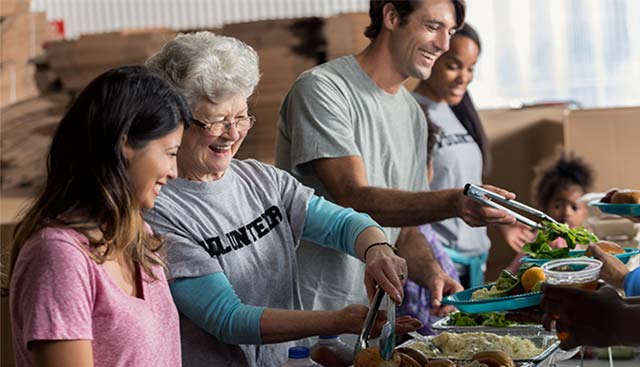The Power of Letters to Seniors: Connecting Generations Through Written Words

With meaningful relationships, it can often feel out of reach, especially for our senior citizens. As families become more dispersed and digital communication becomes the norm, many elderly individuals experience loneliness and social isolation. Yet, one timeless tradition, letter writing, continues to bridge the emotional gap between generations. Through handwritten words, children writing letters for senior citizens has become a powerful act of kindness that warms hearts, uplifts spirits, and fosters mutual respect and affection. It offers a tangible connection in a digital age, fostering a sense of belonging and reminding seniors that they are valued and remembered.
However, personal connections support emotional well-being, especially as we age.
In this blog, we will explore the benefits of letter writing for seniors and offer tips on creating meaningful letters and finding inspiration to start a pen pal tradition.
Why Written Words Matter More Than Ever
In an age of instant messaging and video calls, handwritten letters offer something unique: time, thoughtfulness, and permanence. While a text can be deleted or missed, a physical letter can be held, read, and reread countless times. Each stroke of a pen carries intent, and each word serves as a reminder that someone took the time to care.
Moreover, studies have shown that letter writing promotes emotional well-being in both the sender and the recipient. For seniors, receiving letters can reduce feelings of loneliness and depression. For children, writing these letters fosters empathy, gratitude, and communication skills.
The Benefits of Letter Writing for Seniors
Some benefits of letter writing for seniors.
1. Cognitive stimulation
Writing letters helps boost the brain, aiding seniors in keeping their memory, language skills, and focus sharp. Additionally, this mental activity encourages clear thinking and keeps the mind active and engaged.
2. Emotional Well-being
Writing letters is a healthy and personal way for seniors to share their thoughts and emotions. It can also help reduce feelings of loneliness, ease anxiety, and provide emotional comfort, especially for those who may feel isolated.
3. Strengthened Social Connections
Exchanging letters helps senior citizens remain connected to the people they care about. In a world that increasingly relies on technology, this thoughtful form of communication feels deeply personal and meaningful.
4. Sense of Purpose
Seniors have something to look forward to when they have a purpose for writing, whether it's to a friend, grandchild, or pen buddy. It fosters a sense of purpose, daily structure, and personal fulfillment.
5. Reminiscence and Reflection
Writing letters for senior citizens to share memories, wisdom, and stories from their lives. It encourages meaningful self-reflection and serves as a powerful way to preserve life experiences for future generations.
6. Handwriting Practice
The physical act of writing by hand keeps the fingers and hands active, supporting fine motor skills. For those with arthritis or joint stiffness, regular handwriting can help improve flexibility and reduce discomfort.
7. Low-Tech & Accessible
Writing letters doesn't involve any technical skills, in contrast to modern communication tools. It’s a simple, accessible activity that only involves paper, a pen, and a little time, perfect for seniors who prefer traditional methods of communication.
8. Legacy Creation
Handwritten letters often become treasured keepsakes. Whether it’s a heartfelt message or a story from the past, these letters can carry lasting emotional value and serve as a timeless legacy of love and wisdom for children, grandchildren, and future generations.
Encouraging Children to Participate
So, how can families and schools encourage children to write letters to senior citizens? Here are a few simple steps:
1. Introduce the Idea Creatively
Start by reading a story about intergenerational friendships or watching a short video that shows the value of kindness. Children are naturally empathetic, and with a little inspiration, their creativity flows easily.
2. Include Artwork and Colors
For younger children, especially, pictures speak louder than words. Including drawings, stickers, or colorful borders adds a personal and cheerful touch.
3. Make It a Routine
Turn letter writing into a weekly or monthly activity. It can become a tradition, something that children anticipate and seniors look forward to.
How to Start a Community Letter-Writing Program
Setting up a community-based kids letters to seniors program is easier than it may seem. Here are simple steps to begin:
- Partner with Local Senior Homes
Most elderly care centers are open to such programs. A simple phone call or visit to the manager can help set the stage.
- Create a Safe and Supervised Environment
All letters should be reviewed by a teacher or adult before being sent. This ensures appropriateness and safety.
- Maintain Consistency
Regularity is key. Whether monthly or weekly, maintaining a consistent flow of letters helps develop a sense of routine and expectation among seniors.
- Share Feedback and Photos (With Permission)
When seniors send back notes or share photos of their smiles, children feel the tangible outcome of their kindness. This encourages continued participation.
Transition from one generation to another
The passage of values, wisdom, and responsibilities from one generation to the next is more than just a biological process; it’s a deeply human tradition rooted in connection, memory, and hope. Whether within families, communities, or organizations, generational transitions shape the future by honoring the past.
1. Preserving Wisdom and Experience
Every generation holds valuable lessons shaped by time, effort, and experience. When seniors share stories, guidance, or reflections, they are passing on a foundation others can build upon. This process not only honors their journey but also enriches the lives of younger generations.
2. Fostering Mutual Respect
Successful generational transitions rely on dialogue. Elders need to feel heard and valued, while younger people should feel trusted and empowered. Additionally, this mutual respect helps preserve traditions and welcome new perspectives.
3. Navigating Change with Continuity
While change is inevitable, continuity provides grounding. Whether it’s a family business, cultural ritual, or personal tradition, transitioning to the next generation involves adapting to modern realities while keeping core values intact.
4. Building Emotional and Cultural Bridges
Writing letters, recording stories, or simply spending time together can create lasting bridges between generations. These connections strengthen family ties and provide a sense of identity and belonging that lasts for a lifetime.
5. Planning with Purpose
Planning is key to smooth transitions. In families, this might mean creating a will or sharing life lessons. In businesses, it includes leadership development and succession planning. Clear communication ensures expectations are understood and respected.
6. Leaving a Legacy
At the core of every generational transition is the desire to leave behind something meaningful, whether it's wisdom, tradition, property, or love. Additionally, a well-planned transition helps the next generation carry that legacy forward with pride and purpose.
To Sum Up
As we reflect on the significance of connecting with the older generation, it's evident that handwritten letters to seniors are more than just ink on paper. They are heartfelt expressions that foster joy, emotional healing, and intergenerational bonding. By engaging children in such acts of kindness, we are not just brightening a senior’s day; we are raising compassionate, empathetic young minds.
In a time when isolation among the elderly is increasingly common, these letters serve as beacons of warmth. The relationships built may be quiet and paper-bound, but their influence lasts far beyond the written word. Let us embrace this meaningful initiative and encourage more children to take part in it, making our communities more connected and caring.
At Ace of Hearts, they believe in bringing smiles, comfort, and human connection to senior citizens through heartfelt gestures. Their platform supports and promotes meaningful intergenerational communication by facilitating letter-writing programs, including kids letters to seniors campaigns. Join them in spreading joy and bridging hearts, one letter at a time
Note: IndiBlogHub features both user-submitted and editorial content. We do not verify third-party contributions. Read our Disclaimer and Privacy Policyfor details.




